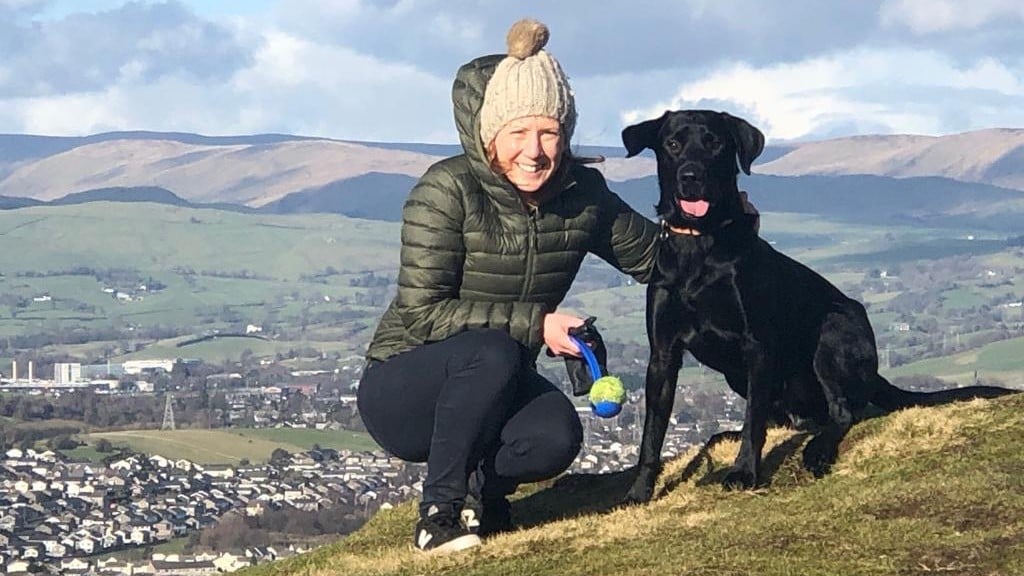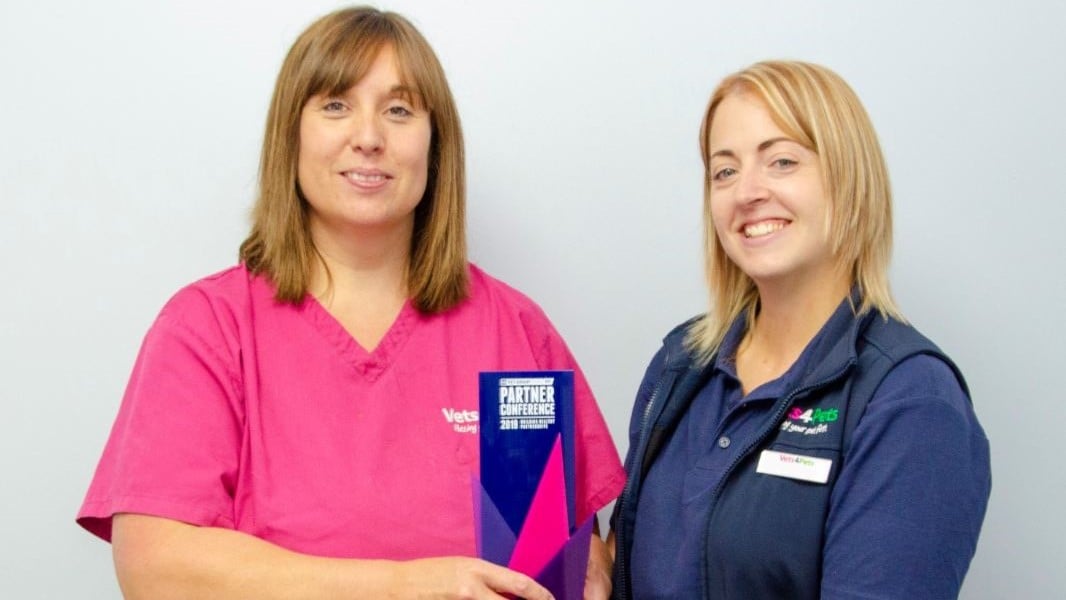
Blog: 10 Questions for Emily Bridges
Emily worked as a Vet Surgeon in one of our first-opinion practices before recently becoming our new Vet Graduate Programme Lead.
Do you remember when you first thought you’d like to be a vet?
I was eight when I decided to become a vet. I think it’s a phase many young girls go through, but I just never changed my mind! My grandma had a cocker spaniel, Florence, whom I adored, and I think she definitely contributed. Most of my family members are teachers so it made me the odd one out!
How did this initial thought become a reality?
I volunteered with St. John Ambulance from the age of 10 until about 21. That had an influence as I was caring for people and providing first aid as well as developing leadership skills. When I was about 15, I also started to do some work at a local kennels and cattery and went on to do lots of the necessary work experience you need and realised it was still my dream.
When I applied to vet school, I remember being told a few times to be prepared for the “why don’t you want to become a doctor?” question. Becoming a human doctor never crossed my mind…I can’t stand feet for one thing!
I graduated from the University of Nottingham vet school in 2011 as part of its first ever cohort, which still makes me proud to this day.
What was your experience as a newly qualified vet?
My first job was at a fairly small practice that I had done some EMS with. They offered me a job before my final year exams so I was lucky. Finding my first role was a very easy process for me; however, I didn’t get the best support there. They were really lovely people, but they didn’t have much experience supporting a new graduate, and after a while, I started to struggle. My colleagues thought my confidence was low, but looking back with the experience I have now, they just had the wrong expectations of a newly graduated vet.
What did you do after your first job and before coming to Vets4Pets?
After 18 months I moved to another practice in the area, which was quite different. They really supported me, and there was always help available if I needed it. That’s when I rediscovered that I did want to be a vet and that it was the work place, not the career choice, that had been the problem.
It was also at this practice that I first started mentoring new graduates and vet students, a role that I continued to do ever since.
I then moved to Brighton where I joined a big practice with a large hospital that did lots of emergency work. I was there for almost five years and progressed enormously, developing clinical and leadership skills working as part of the most fantastic team of people.
Was it then that you started to think you wanted to go a different route with your career?
Yes. I started to realise that clinically, there wasn’t a specialty I wanted to pursue, and what I found most rewarding in my work was when I was helping graduates or vet students or training nurses. I realised that it was the people not the clinical side that gave me the greatest job satisfaction. Essentially, I was coming back to my roots of a family of teachers!
So I started to do a little bit of teaching at the University of Surrey, facilitating small groups and supporting the students, which I really enjoyed, but it did help me realise that University teaching wasn’t quite the environment I was looking for.
Around this time, I moved to Companion Care Burgess Hill. The team there was looking for someone who could mentor a new graduate in their practice and the Joint Venture Partner was really supportive of my interest in education and training.
How did you make the transition into your current role?
When I was working at Companion Care Burgess Hill, I had the opportunity to be a Talent Ambassador. At the time, there are 22 of us across the Pets at Home Vet Group, and we were there to coach graduates and share our experiences. I therefore attended the graduate induction event, and it was there I found out about this role.
When I read the job description, I got really excited. I felt like I had just stumbled across my perfect role. I could still work around vets in practice and stay in the same fantastic company but could combine training of graduates and welfare support.
What does your job involve?
I oversee our programme for recently graduated vets. It’s my responsibility to make sure we use the two-year programme to develop them as best as we possibly can. I ensure we’re delivering CPD that is of a very-high standard, and I keep track of all our grads and work hard to make sure they get the support they need to help them with any problems or difficulties they are having, either personally or within the workplace.
I’m also excited to start developing the programme to make it even more beneficial, and we’re already starting to think about how we can then support them with their next steps once they finish the programme.
What has surprised you the most since starting the role?
One of the things I’ve really noticed is how far our graduates have developed after just one year in practice with us. I recently attended our Interpersonal Skills CPD session, and I was impressed with their increased confidence and clinical knowledge. It was noticeable and really lovely to see, and it tells me our programme is doing something right. It also reminded me why I decided to take this role!
What’s a typical day like for you?
Really, there isn’t a typical day, which is part of what I enjoy about this job. I spend half of my week in Swindon at the Support Office, part of my week working from home, and I regularly attend the graduate CPD events we hold. I also have regular meetings with teams across the business and external providers to get the best provision for our graduates I possibly can. I also love that I often get to put my veterinary hat on and contribute to clinical discussions too.
If you weren’t a vet, what do you think you would be doing as a career?
I did have one wobble when I was applying to university and thought I may want to be a midwife, but now, I think in another life I could probably be quite happy running a tea shop by the sea!
Our current grad cohort tells us our programme has soul

Vets4Pets Northampton wins 2019 Grad Practice of the Year award

